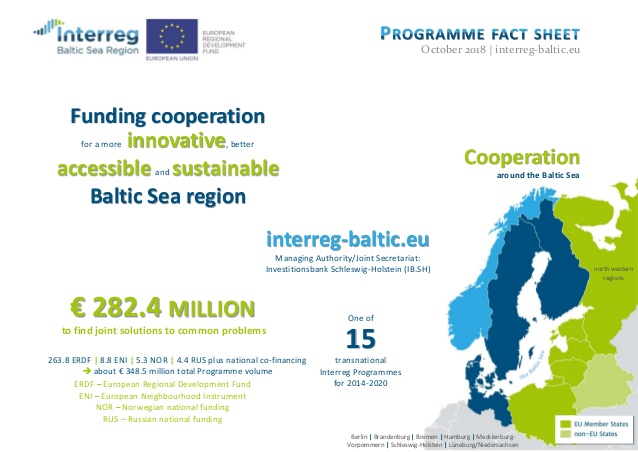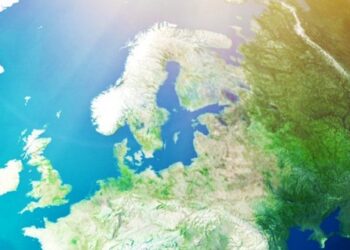A new EU project seeking to improve ferries transport in Baltic Sea was presented in Sweden this week. The project “Real Time Ferries (RTF)”, under the EU-funded Interreg Baltic Sea Region Programme 2014-2020, seeks to extend the use of real-time information to optimise intermodal transport chains for goods and people in the Baltic Sea Region.
The Baltic Sea region depends on well-functioning ferry links as significant parts of its international and domestic flows of goods and passengers include ferry trips and involve intermodal transport chains.
RTF sets up a collaborative BSR ferry real time data hub that provides a shares base infrastructure to collect, process and deploy real-time info along intermodal (ports and logistics, public transport, ship navigation) door-to-door transport chains across the region. It is intended to establish 5-10 pilot applications for different situations, such as redirecting goods and passengers in case the trip is cancelled.
By the end of the project, it will be easier and cheaper for all relevant transport actors to generate and utilise the solution for optimising intermodal transport chains for both: goods and people, across the entire region.
The Interreg Baltic Sea Region Programme 2014-2020 supports integrated territorial development and cooperation for a more innovative, better accessible and sustainable Baltic Sea region. Partners from countries around the Baltic Sea work together in transnational projects on common key challenges and opportunities.

The Programme is an agreement between EU member states Denmark, Estonia, Finland, Latvia, Lithuania, Poland, Sweden and the northern parts of Germany as well as partner countries Norway, Belarus and the northwest regions of Russia. The Programme is funded by the EU and approved by the European Commission.
Projects have to involve at least three partners from three different countries from the Programme area. Total project budgets typically range between EUR 1.5 and 4.5 million for seven or more partners working together for two to three years.
Priorities
- Priority 1 – Capacity for Innovation
- Priority 2 – Management of natural resources
- Priority 3 – Sustainable transport
- Priority 4 – EU Strategy support






























































